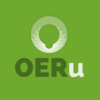OERu context evaluation
Contents
- 1 Background to the study
- 2 The survey instrument
- 3 Summary of findings from context evaluation questions
- 3.1 Current stage in the development of open courses to be used for the OERu pilot
- 3.2 Agreement to OERu principles and policies by executive leadership
- 3.3 Challenges experienced hindering participation
- 3.4 Change required to existing policies to successfully implement assessment services
- 3.5 Assessment methods most likely to be used in the future
- 3.6 Effectiveness of student support options
Background to the study
| Quicklinks to resources |
|---|
| Summary of results (pdf 1.2MB) |
| Summary of results on Slideshare |
| Survey questionnaire (pdf 616KB) |
| “ | The OERu context evaluation arose in an attempt to explore the needs, problems, assets and opportunities experienced by each of the partner members while preparing their contributions to the project. | ” |
| —Angela Murhpy | ||
A survey was developed and launched in May and June 2012 to assess the extent to which OERu members are ready for participating in the pilot of the OERu model and determine which challenges organisations are currently facing. A further aim of the study was to examine the OER initiatives, practices and policies that network members are currently engaged in and compare these to those undertaking by other institutions worldwide.

A total of 110 valid responses were retained for the analysis of the results, these included complete responses as well as partial responses that had completed a significant component of the survey. Nineteen participants (14%) noted that their organisations were actively involved in the OERu network. Twelve (11%) formally responded as an institutional representative of an OERu anchor partner. A further 98 participants that were not actively involved in the OERu participated in the study. A total of 83 institutions were represented in the results.
Institutions from across the world participated in the study with the majority originating from the United Kingdom (40%), North America (17%) and South America (15%), and Australia or New Zealand (9%). The majority of respondents were practitioners (48%) including lecturers, teachers, trainers, educational designers, and project workers, although 34% were managers, senior managers or executive managers. Universities formed the largest cohort (64%), followed by public organisations, not for profits or other non-teaching organisations (27%), polytechnic universities or institutes of technology (including TAFE) (9%), secondary institutions (8%), vocational training providers (6%) and 3 year community colleges (2%). OERu network participants originated from Canada (n=4), New Zealand/Australia (n=5), South Africa (n=2), and India (n=1).
| “ | I'm refreshed by the outcome of the survey results which confirms that the most important drivers for participation in the OERu network are well-aligned with university values. That is, the affordances our OERu network provides to facilitate collaboration with an international network of institutional peers and the institutional commitment of our members to widen access to education for learners currently excluded from the formal sector being the top two reasons for joining our innovation partnership. | ” |
| —Wayne Mackintosh | ||
The survey instrument
The survey was programmed and hosted using an online survey tool and a link to the survey was disseminated using social media such as Twitter and Facebook and through newsletters and discussion forums, including the mailing list for organisations interested in the OERu. On completion of the survey all respondents received a PDF of their responses which they will be able to use as a benchmarking tool to map the compatibility of their organisations with the OERu concept. A prize incentive was also offered to all participants who completed the survey. More than one participant from each university was permitted to participate.
The survey is available at http://sgiz.mobi/s3/2ce8e34546a7 and will remain open for those who would like to continue to contribute.
The prize draw is no longer available but participants who complete the survey will still be able to obtain an automatic export of their responses which they will be able to use as a benchmarking tool to map the compatibility of their organisations with the OERu concept.
Summary of findings from context evaluation questions
Current stage in the development of open courses to be used for the OERu pilot
At the stage of completing the survey nearly all OERu anchor partners were well on their way to finalising the development of their open courses to be used for the OERu pilot, with 45% undergoing development but nearing completion and 27% in the early stages of development.
Agreement to OERu principles and policies by executive leadership
The executive leadership from a third of participating institutions (36%) have agreed to the principles and policies of the OERu and have already institutionalised these policies within the organisation and 36% have agreed but not yet institutionalised these policies.
Challenges experienced hindering participation
An overwhelming 64% of participants have not experienced any issues hindering participation in the OERu concept. The issues experienced by 36% of the sample related mostly to availability or resources, organisational experience with open development models, and limited resources in the form of technology and time.
Change required to existing policies to successfully implement assessment services
A large proportion of OERu network participations were uncertain (38%) as to the extent to which policies required change at their institutions to successfully implement assessment services for OERu courses. A third (38%), however, felt that not or minimal policy revision was required and 26% required only moderate policy revision. Participants felt that this is largely because the OERu model is designed to operate within existing policy frameworks and most institutions already have RPL and accreditation policies in place.
Assessment methods most likely to be used in the future
The majority of partners (90%) will rely mostly on the provision of recognition of prior learning portfolio assessments or course-based portfolio’s (90%) in the future followed by automated online assessment (66%), proctored examinations (66%), and the same assessments as for fee-paying students (66%). Only 10% are likely to make extensive use of volunteer assessors and 22% of workplace assessment.
Effectiveness of student support options
Integrating peer-to-peer learning support models is considered by partners to be the most effective student support options for students participating in OER courses (80%). The use of retired academic volunteers (60%) and designing systems for senior students to volunteer support for junior students (60%) are also considered to be effective options by a most participants.

